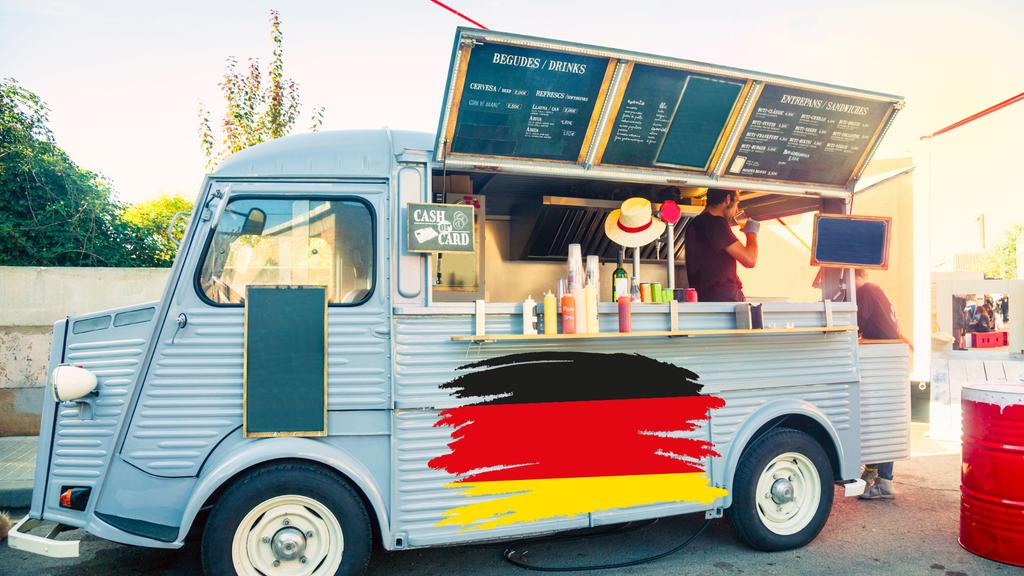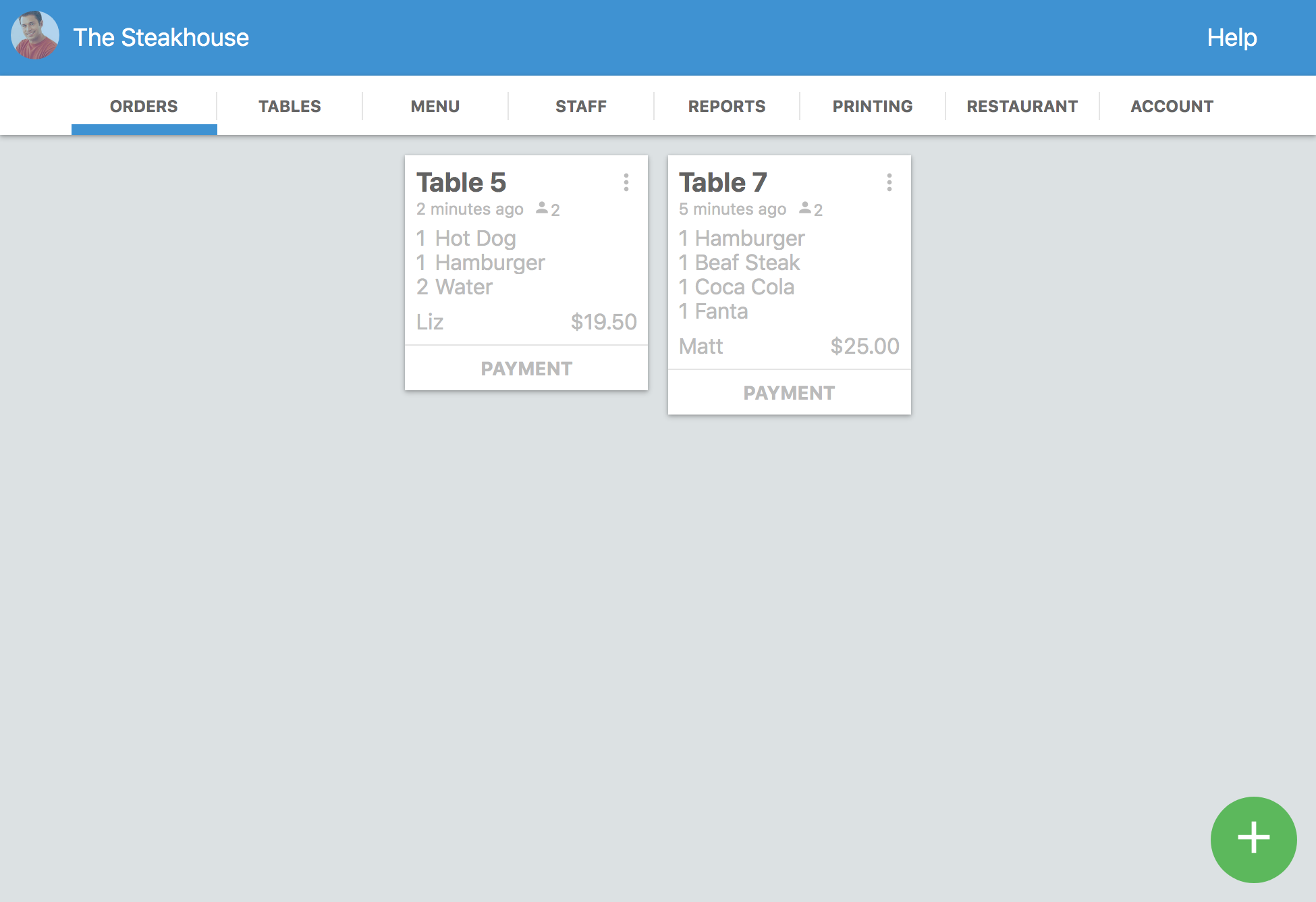The dream of running your own small, mobile catering business can only be realized with solid preparation and knowledge of the legal framework.
So if you would like to take advantage of the exciting opportunity to enjoy your culinary delicacies directly through a food truck, a snack truck, or a vending vehicle for customers, compliance with legal regulations is crucial to the success and sustainability of the business.
This guide aims to provide aspiring operators with a detailed overview of the necessary permits and regulations required to operate a food truck or similar sales vehicle in Germany. Equipped with this knowledge, you can lay the foundation for a successful and legally compliant company. The benefits of operating a food truck can be found here.
Legal Basis and Permits for Operating a Food Truck or Snack Truck

Operating a food truck, food truck, or vending vehicle involves several legal requirements that must be carefully considered. These regulations are designed to protect both the business owner and the public and to ensure that the business has a solid legal basis. In this chapter, we will explain in detail the various permits and legal frameworks required for operation.
With a cash register system tailored precisely to one's needs and tailored to food trucks, you are also ideally positioned to drive your business at full speed.
Regulations for Food Trucks and the Like: General Business Requirements
Before you hit the road with your food truck, there are several business and legal steps you need to take. These are crucial to running your business in a legally compliant manner and avoiding potential legal obstacles.
The basis is the business registration, the travel business card, and the consideration of tax aspects. Each of these elements plays a critical role in the foundation of your business and requires your attention.
Business Registration
Registering your business is the first step towards becoming self-employed in the mobile catering sector. You register your business with the trade office of the city or municipality in which you want to operate. This process is mandatory for every business in Germany and serves as the official registration of your company. When you register, you will receive a business number, which is necessary for many further steps and official inquiries.
Travel Trade Card
Operating a mobile vending business, such as a food truck, typically requires a traveling business card. This allows you to offer goods or provide services outside of fixed business premises. The travel business card is issued by the public order office or trade office and is valid nationwide after a successful application. The card ensures that you can take full advantage of the mobility of your business model, but it also requires you to adhere to specific rules and regulations.
Tax Aspects

In addition to registering your business and getting your travel business card, you also have to take various tax aspects into account. This includes registering with the tax office, deciding on the appropriate legal form for your company, and regularly paying taxes such as sales tax and, if necessary, income tax.
It is advisable to contact legal and tax advisors at an early stage to find the optimal tax structure for your company and to handle all necessary tax advance payments and returns correctly.
Sales Tax Booklets in the Travel Industry
Mobile businesses must keep a sales tax record following Section 22 of the UStG. They must document their sales and performance daily in this booklet. Small business owners, who may be exempt from sales tax, are also required to enter their gross income daily.
The sales tax book serves as proof of business activity and must be kept for ten years. An exception to this rule exists for traders with a fixed location who do not operate mobile businesses. The booklet must be submitted to the tax office regularly, especially by those starting up a business in the first two years.
Food Law and Hygiene Regulations

Compliance with food laws and hygiene regulations is essential for a food truck. This includes compliance with food hygiene regulations, which ensure that food is prepared, stored, and transported in safe conditions.
Operators are typically required to attend specialized training and obtain a certificate confirming their food safety and hygiene knowledge. This also includes handling food, personal hygiene, and regular cleaning and maintenance of the food truck.
The responsible health authorities carry out controls to check compliance with regulations, especially HACCP. It is important to continually stay informed about current regulations and implement them to ensure the smooth operation of the business.
Permits for Food Trucks, Snack Carts, Etc.: Stand Permit
The choice of location is of central importance for food trucks, with a distinction being made between fixed and changing locations. Permanent locations allow you to build up a regular clientele but often require long-term permits and contracts with the property owners or the municipality.
Changing locations offers flexibility and access to different target groups, but requires careful planning and coordination with local authorities.
The application for a standing permit is usually made to the city administration or the public order office, whereby specific conditions such as compliance with safety distances, noise protection regulations, and hygiene standards must be taken into account. Find out about the requirements and deadlines from the municipality or city early on.
A Building Permit May Be Required
For long-term or recurring stalls, such as food trucks, that operate for more than three months, building permits may be necessary. Such a permit relates to a specific location.
If you change location, new permits may need to be obtained. The responsibility for issuing these permits lies with the local authorities, such as the city administration or the district office.
Drinking Water Permit
According to the Drinking Water Ordinance, proof of drinking water quality is mandatory for food trucks and other mobile sales stands that use water to prepare food or for direct consumption.
This proof serves to ensure that the water used meets health requirements and does not pose a risk to consumers. Operators must have regular inspections carried out and keep the results as part of their operational documentation.
Environmental Protection and Waste Disposal

The sustainable operations of a food truck include environmentally friendly practices and effective waste disposal. This means choosing biodegradable or reusable packaging, reducing food waste, and properly separating and disposing of waste.
Operators must also comply with local waste disposal regulations and can make a positive contribution to environmental protection through recycling and composting.
Special Requirements and Restrictions
Food truck operating permits may vary regionally, including seasonal restrictions and specific requirements for events and festivals. Operators must inform themselves about local regulations regarding location, operating hours, and participation in public events.
Early planning and registration for events are often necessary to comply with the legal framework and thus ensure participation.
What Do I Have to Consider in Order Not to Be Classified as a Restaurant?

To avoid a food truck being classified as a restaurant, which would require a restaurant permit, certain points must be taken into account. A crucial factor is on-site consumption. A food truck that does not offer options for on-site consumption, such as seating, will generally not fall under restaurant law. A pure take-away sale is therefore a clear demarcation. If alcohol is to be sold, the requirements change and a special license is required.
Conclusion
Operating a food truck requires a comprehensive understanding of legal requirements, from business registration to hygiene regulations to specific permits for stand locations.
Paying close attention to these guidelines, regulations, and permits for operating a food truck, food truck, or mobile stand not only allows for smooth operations but also protects against potential legal trouble. It is important to keep yourself informed about current changes in the law and to adapt the way you operate accordingly to ensure long-term success. With proper marketing, you can get on the road to success.





